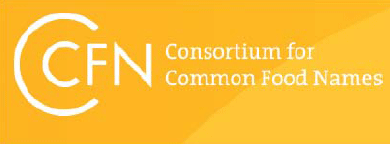
WIPO Members Warned of Unintended Consequences to International Food Trade in Advance of Meeting this Month
Representatives of the Consortium for Common Food Names (CCFN) were in Geneva last week for the 2014 World Intellectual Property Organization (WIPO) General Assembly Meeting, voicing concern about current proposals to expand the Lisbon Agreement, an international system for geographical indications (GIs) that threatens to severely impede the global use of common names for many cheeses, meats, beverages and other foods.
The WIPO meeting preceded a more specific discussion of WIPO's Lisbon Agreement proposal later this month by the countries that are signed on to the Agreement as well as interested observers. CCFN is one of the few organizations to whom WIPO has granted "observer status" in the Lisbon Agreement Working Group, which allows CCFN to make comments during the upcoming October proceedings. Officials from the U.S., Australian and New Zealand governments are among the other observers.
"The U.S. government, along with officials from Australia, Argentina, Chile, Colombia, New Zealand and Uruguay, among other countries, is working hard to protect the rights and interests of food producers around the world by crying foul to the proposed, flawed approach to the Lisbon Agreement now under discussion," said CCFN Executive Director Jaime Castaneda. "CCFN is joining in that chorus, because the agreement as currently drafted is overly broad and vague, and would not safeguard common food names used by countless food producers around the globe. Expansion of the Lisbon Agreement poses a high risk of violating existing trade commitments and posing significant economic costs on many nations."
The Lisbon Agreement, first activated in 1966, is a voluntary system where countries within the pact add names that they would like protected to a general list, and other nations agree to protect those names. Only about 30 nations, the majority from Europe, have signed on. To date the agreement has not dramatically impacted global trade due to its relatively limited membership and product scope. However, the proposed revisions to the program - which the WIPO group would like to finalize this month - would seek to dramatically expand the registration of common names (as illegitimate GIs) across many more countries, thereby putting at greater risk the markets developed by many small food producers in developing countries and throughout the world.
Because these restrictions on the use of registered names automatically kick in after a year, the revised Lisbon Agreement could cause immediate, multiple trade issues around the world concerning the protection of common food names, potentially leading to new restrictions on sales of generically named products in dozens of countries.
"There is a positive way forward on GIs," said Castaneda. "There are ways to protect the names of geographical specialty foods and beverages without impeding the rights to use generic food names. We urge WIPO to insist that Lisbon Agreement proponents go back to the drawing board to better balance these twin concerns."
 The Consortium for Common Food Names (CCFN) is an independent, international non-profit alliance whose goal is to work with leaders in agriculture, trade and intellectual property rights to foster the adoption of high standards and model geographical indication guidelines throughout the world. Those interested in joining can find information at www.CommonFoodNames.com.
The Consortium for Common Food Names (CCFN) is an independent, international non-profit alliance whose goal is to work with leaders in agriculture, trade and intellectual property rights to foster the adoption of high standards and model geographical indication guidelines throughout the world. Those interested in joining can find information at www.CommonFoodNames.com.10.1.2014